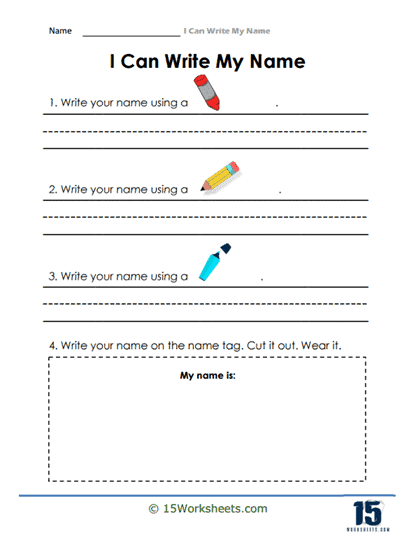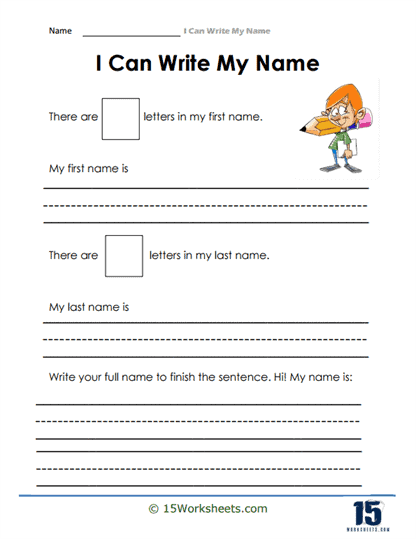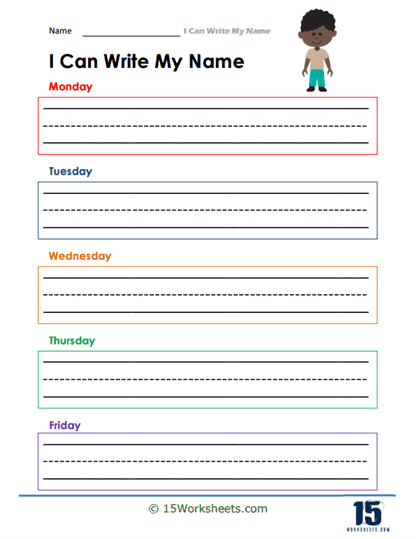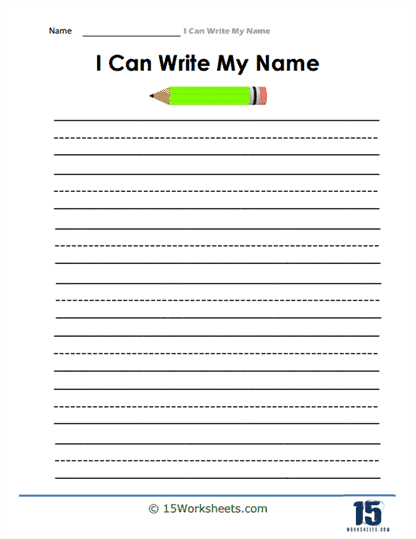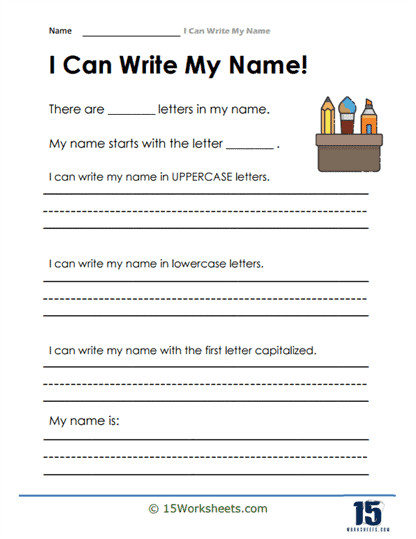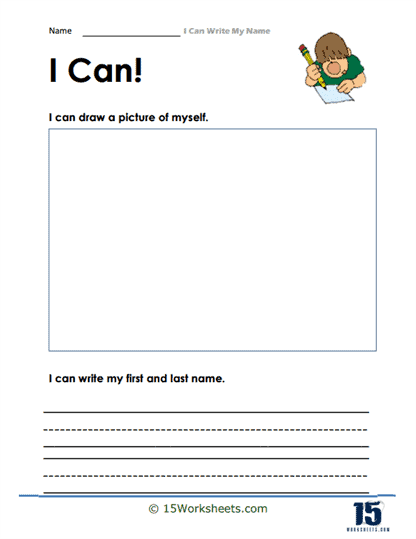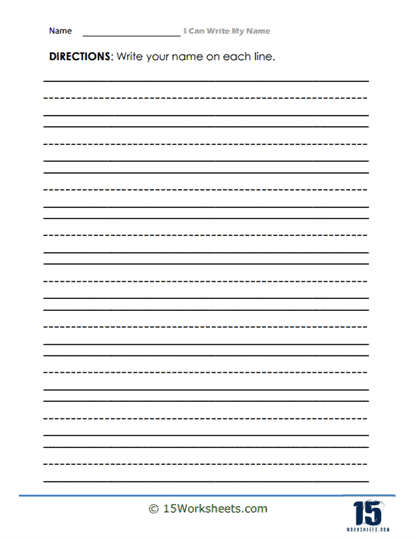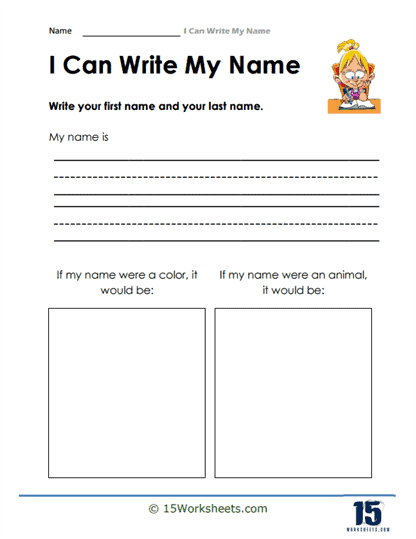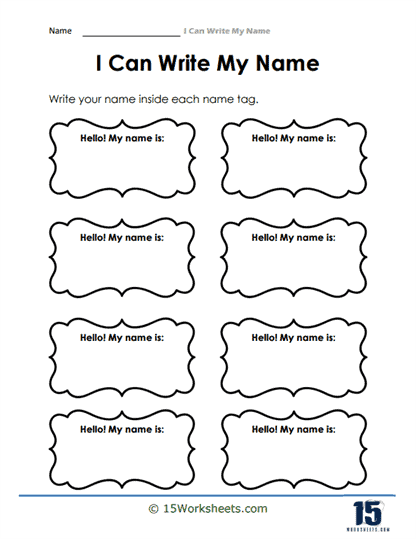I Can Write My Name Worksheets
Why Does Helping Students Write Their Name Matter?
Helping students learn to write their name is an important milestone in their education and development for several reasons:
Identity and Self-recognition – Learning to write their name helps children develop a sense of identity and self-recognition. It allows them to understand that they are unique individuals, separate from others, and gives them a way to represent themselves in written form.
Introduction to Writing – Writing their name is often a child’s first experience with writing. It serves as an introduction to letter formation, letter-sound correspondence, and fine motor skills required for handwriting. This foundational skill will be built upon as they learn to write other words and eventually, sentences.
Ownership and Responsibility – When children can write their name, they can “sign” their work, taking ownership and responsibility for their creations, whether it’s a drawing, a craft project, or a written assignment. This encourages a sense of pride and accomplishment.
Independence and Autonomy – Being able to write their name independently boosts a child’s self-confidence and autonomy. This newfound skill allows them to participate in various activities, such as signing up for clubs, filling out forms, or labeling their belongings.
Social Interactions – Learning to write their name helps children with social interactions, as they can introduce themselves in written form and share their name with others, fostering connections and friendships.
Literacy Development – Writing their name is a fundamental literacy skill, as it familiarizes children with the alphabet, letter shapes, and the concept of using written symbols to represent spoken language.
Building Routine – Writing their name can become a part of daily routines, such as signing in at school or completing assignments. This practice helps reinforce the skill and establishes a sense of structure and consistency.
Teaching children to write their name is a crucial step in their early education, as it promotes their sense of identity, introduces them to writing, and supports their overall literacy development. It’s essential to provide guidance, practice, and encouragement to help them master this foundational skill.





